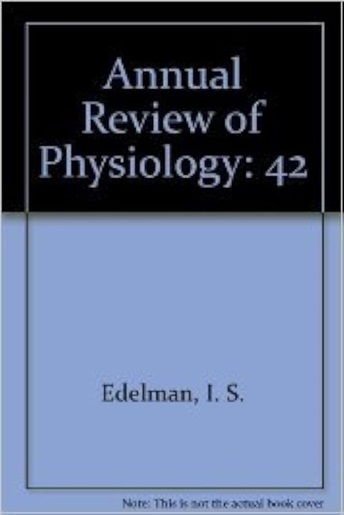Diurnal Regulation of Renal Electrolyte Excretion: The Role of Paracrine Factors.
IF 15.7
1区 医学
Q1 PHYSIOLOGY
引用次数: 15
Abstract
Many physiological processes, including most kidney-related functions, follow specific rhythms tied to a 24-h cycle. This is largely because circadian genes operate in virtually every cell type in the body. In addition, many noncanonical genes have intrinsic circadian rhythms, especially within the liver and kidney. This new level of complexity applies to the control of renal electrolyte excretion. Furthermore, there is growing evidence that paracrine and autocrine factors, especially the endothelin system, are regulated by clock genes. We have known for decades that excretion of electrolytes is dependent on time of day, which could play an important role in fluid volume balance and blood pressure control. Here, we review what is known about the interplay between paracrine and circadian control of electrolyte excretion. The hope is that recognition of paracrine and circadian factors can be considered more deeply in the future when integrating with well-established neuroendocrine control of excretion. Expected final online publication date for the Annual Review of Physiology, Volume 82 is February 10, 2020. Please see http://www.annualreviews.org/page/journal/pubdates for revised estimates.肾脏电解质排泄的昼夜调节:旁分泌因子的作用。
许多生理过程,包括大多数与肾脏相关的功能,都遵循与24小时周期相关的特定节律。这在很大程度上是因为昼夜节律基因几乎在身体的每一种细胞类型中都起作用。此外,许多非经典基因具有内在的昼夜节律,尤其是在肝脏和肾脏中。这种新的复杂性水平适用于肾电解质排泄的控制。此外,越来越多的证据表明,旁分泌和自分泌因子,尤其是内皮素系统,受到时钟基因的调节。几十年来,我们已经知道电解质的排泄取决于一天中的时间,这可能在液体体积平衡和血压控制中发挥重要作用。在这里,我们回顾了电解质排泄的旁分泌和昼夜节律控制之间的相互作用。希望在未来与公认的排泄神经内分泌控制相结合时,可以更深入地考虑对旁分泌和昼夜节律因子的识别。《生理学年度评论》第82卷预计最终在线出版日期为2020年2月10日。请参阅http://www.annualreviews.org/page/journal/pubdates用于修订估算。
本文章由计算机程序翻译,如有差异,请以英文原文为准。
求助全文
约1分钟内获得全文
求助全文
来源期刊

Annual review of physiology
医学-生理学
CiteScore
35.60
自引率
0.00%
发文量
41
期刊介绍:
Since 1939, the Annual Review of Physiology has been highlighting significant developments in animal physiology. The journal covers diverse areas, including cardiovascular physiology, cell physiology, ecological, evolutionary, and comparative physiology, endocrinology, gastrointestinal physiology, neurophysiology, renal and electrolyte physiology, respiratory physiology, and special topics.
 求助内容:
求助内容: 应助结果提醒方式:
应助结果提醒方式:


